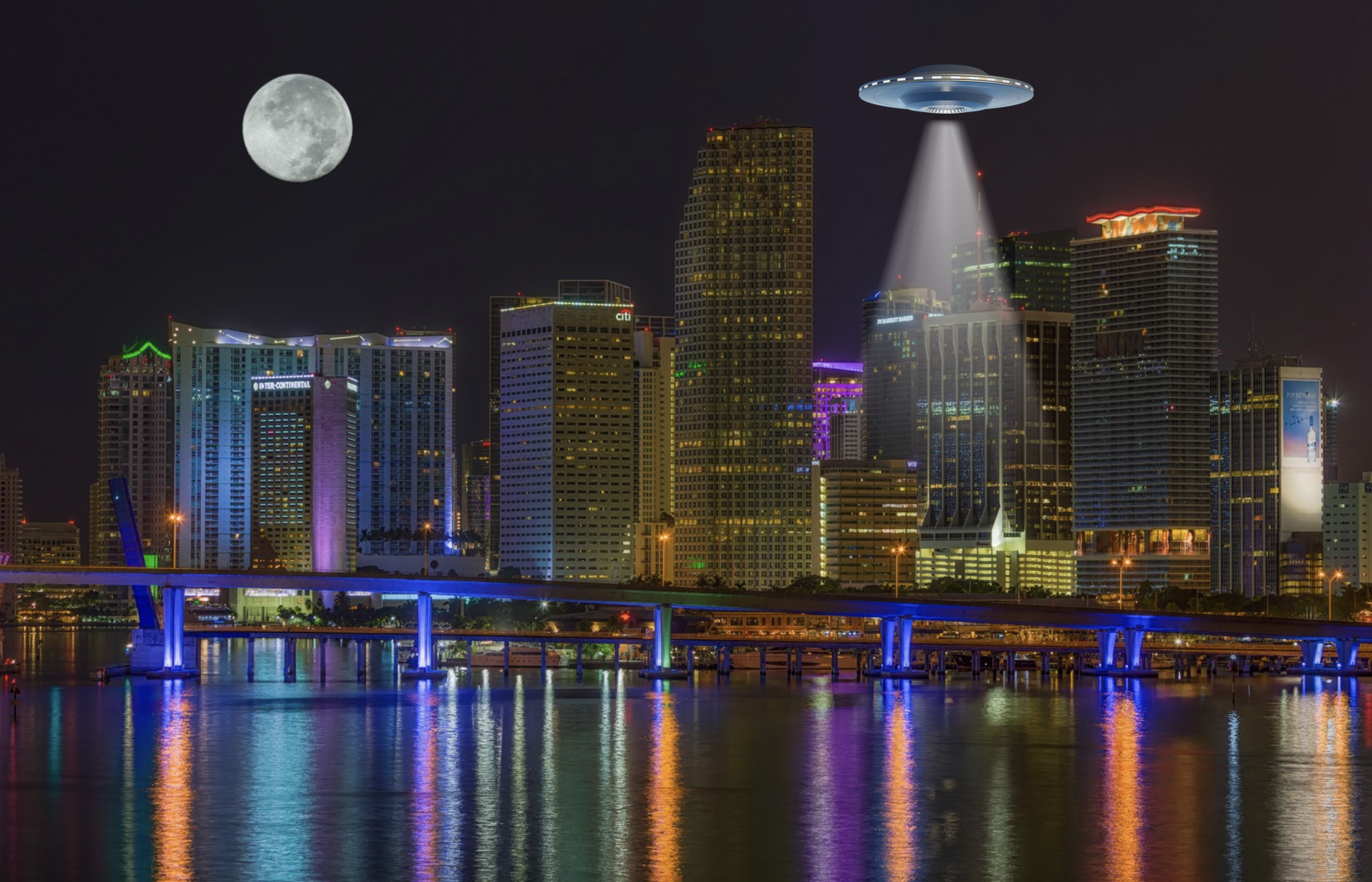
Photo of Miami’s skyline by Matthew Paulson via Flickr, collage made by New Times

Audio By Carbonatix
With delivery robots roaming, self-driving cars whirring, and artificial intelligence entering the job market, Miami can feel like a city straight out of science fiction, especially to newcomers and visitors. So, it’s perhaps difficult to fault South Florida social media for thinking aliens flew by for a visit last night.
Some sects of South Florida social media were abuzz Monday night after seeing what appeared to be a slow-moving beam of light, like a flashlight being swung backward through the sky. Many immediately assumed it was aliens. While people questioned whether an unidentified object had entered the Magic City orbit, one admitted that a recent toke could have played a part in the phenomenon.
Some commenters, who are apparently aware of Google’s power, noted that the flying object was most certainly identifiable. A quick search revealed that SpaceX launched a rocket from Elon Musk’s Texas base, and its trajectory took it directly over South Florida about 20 minutes before users took their confusion to X, Musk’s own social media platform. On its website, SpaceX confirmed the launch of its Starship on its 11th flight test. The trip, which lasted an hour and six minutes, took the rocket over Florida and all the way to the Indian Ocean, basically halfway across the world from its starting point in Starbase, Texas.
SpaceX, short for Space Exploration Technologies Corp., is a Musk-led venture focusing on advancements in rocket propulsion, reusable launch vehicles, human space flight, and satellite technology. The Starship is a spacecraft designed to take both people and cargo to Earth’s orbit, the moon, Mars, and beyond, according to SpaceX. The 403-foot-tall rocket is capable of carrying about 150 metric tons — that’s more than 1,650 200-pound men, or almost 90,000 jumbo-sized cans of Tang, an astronaut’s favorite drink.
South Floridians are no strangers to rocket sightings; for more than 75 years, launches from Cape Canaveral, roughly 220 miles north, have lit up local skies. The Kennedy Space Center, the National Aeronautics and Space Administration’s (NASA’s) primary launch site for human spaceflight, has hosted thousands of rocket launches since the 1950s, earning Cape Canaveral and the surrounding area its “Space Coast” moniker.
Despite clear evidence of SpaceX’s activities in and over Florida, some were still unconvinced Musk was behind the sighting.